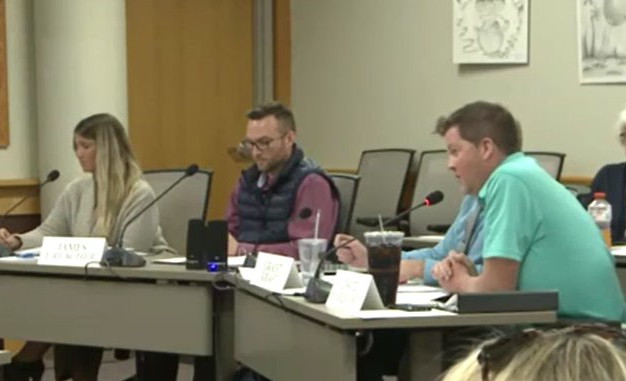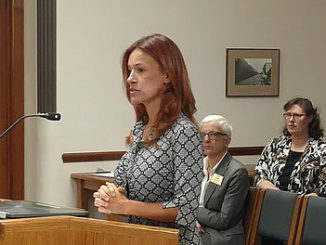
Unless you live in and/or pay attention to what happens in Fargo, then you’re likely not aware of the contract negotiations going on between the Fargo School board and the Fargo Education Association. I first wrote about this last month when we published an article exposing the possibility that the school board is in violation of state law for not having policies in place regarding those who perpetrate violence in their schools. This came out in an interview that Point of View’s Chris Berg had with Fargo Education Association’s President David Marquardt. Safety is apparently a significant problem for Fargo Schools— with 70% of teachers saying they are intimidated or fearful in their classrooms.
Yet, safety obviously isn’t the only aspect of teacher negotiations for the Fargo School District. According to an article in The Forum last week, talks between the Fargo School Board and the Fargo Education Association have broken off for the summer. The reason? The two sides couldn’t agree on pay.
It’s certainly not unheard of for differences to be had between school boards and educators. It is, after all, negotiating. But to break them off for the summer— why? Well, according to The Forum:
“The teachers responded that they, too, want a two-year contract, but that their busy schedules this summer with people taking students on overseas cultural trips, summer camps, continuing education classes, child care and other activities would keep them from having time to meet again until late summer. They offered to stay later into the night, but the board refused.” (Emphasis Added)
Seriously? For people in a profession that is often heralded as “underpaid” — and who are currently saying they need more compensation — I’m not sure it’s a good idea to break off negotiations regarding their pay under the pretense that they’re just too “busy” with summer activities.
So, how much is separating the two sides? Not an exorbitant amount of money. Again, according to The Forum:
“The pay for a starting teacher under the school board proposal would be $41,989 the first year and $42,619 the second year, while under the teachers’ proposal it would be $42,570 the first year and $43,421 the second year.”
That means a difference between the two sides of $581 in the first year and $802 in the second. In terms of overall percentage increases to base salary, the school board’s offer is 1.1% the first year and 1.5% the second. The teachers’ counter offer sits at 2.5% the first year and 2% the second. With numbers like these, you’d think now would be the time to press forward to an agreement, not take the summer off from reaching one. Maybe it’s just not as big a deal to the teachers after all?
In an article published yesterday, Forum News Service’s Emma Beyer asked the question of whether strikes could ultimately come as a result of the differences— something that has never happened in the state’s history, according to DPI spokesman Dale Wetzel. In fact, Beyer rightfully points out that state law prohibits teachers from participating in such things:
15.1-16-16. Participation in a strike – Prohibition.
Teachers and administrators employed by school districts may not participate in a strike. The board of a school district may withhold some or all the wages otherwise due a teacher or an administrator who elects to participate in a strike in violation of this section.
However, as you can see, the only penalty for North Dakota educators who would choose to participate in a strike is the withholding of pay. Regardless, I’m guessing that the possibility of a teacher strike in Fargo is about zilch. Especially when we consider they’d rather take the summer off from negotiations, than continue on to a resolution.
It’s interesting when we look at some of these numbers from a different perspective. For example, let’s take the school board’s proposal of $41,989/year for a teacher’s starting pay. I’ll agree that doesn’t sound like a lot of money in today’s world. But a breakdown of it sheds a different light.
As explained in one of the aforementioned articles, each state funds and guarantees 180 days of school each year. If we add two days for in-services held prior to the first day of school, we end up with 182 days. That means under the Fargo School Board’s current proposal a first year teacher would make about $230.70/day. Divide that by an 8-hour work day and it comes out to be about $28.84/hour. Not bad wages at all.
Now, before someone points out that this same teacher would have the summer off — and therefore wouldn’t get paid for these months — let’s look at the numbers in a different way. A typical year without weekends gives us 260-261 days— depending on leap years. Call them what you will — “weekdays” or “working days” — let’s take the higher number of 261. At $41,989/year, this averages out to about $160.87/day. Divide that by an 8-hour work day and it comes out to be about $20.11/hour.
So, in other words, even if we average out a first year teacher’s salary for an entire years worth of weekdays or working days, they still average out to making $20.11/hour. Not bad— especially for someone who wouldn’t work all of those days. Let’s not forget, this same teacher not only wouldn’t work during the summer, but they have weekends and holidays off to boot. And we haven’t even factored in a benefit package.
Look, believe it or not, I don’t hate teachers— not even close. I truly believe that some of the most dedicated professionals are among their ranks. I absolutely agree that the impact many of them have on our young people is immeasurable. But I don’t think we need to pretend that they’re some sort of victims relegated to lives of extreme poverty. In fact, in order for this same first year teacher to be below the poverty line, they’d have to have 8 children.
Make no mistake about it, the Fargo School Board has some serious issues to resolve on their end. But the teachers associated with the Fargo Education Association haven’t done themselves any favors by saying they need more money, while simultaneously ending contract negotiations because they’re too busy this summer. In my opinion, it just makes them look bad.
PLEASE LIKE & SHARE!
Sources:
- https://theminutemanblog.com/2019/05/17/is-fargo-school-district-violating-state-law-for-lack-of-policy-on-violence/
- https://www.facebook.com/POVnow/videos/362355904400911/?v=362355904400911
- https://www.inforum.com/news/education/1013355-7-in-10-Fargo-teachers-say-they-are-fearful-in-their-classrooms
- https://www.inforum.com/news/education/1357539-Fargo-teacher-contract-talks-break-off-for-the-summer
- https://www.legis.nd.gov/cencode/t15-1c16.pdf
- https://aspe.hhs.gov/2018-poverty-guidelines





